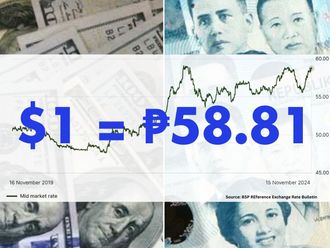Mexico City: Mexico wants to revamp decades-old laws to ease limits on foreign investment in markets with little or no competition such as the airline, telecoms and energy sectors.
"We think that investment restrictions have to be revisited systematically in tandem with the country's economic growth," Jose Antonio Torre, deputy minister for competition and standard-setting at Mexico's economy ministry, said.
The economy ministry and regulators will be part of the study by Mexico's Foreign Investment National Commission to reconsider investment caps last reviewed in 1993.
Alejandro Faya, head of Mexico's bureau of foreign investment, said the review would concentrate on transportation, energy and telecommunications. Currently, foreign investment in airlines is capped at 25 per cent and at 49 per cent for fixed-line telephony.
"The 25 per cent foreign investment cap on airlines is part of the analysis. We think that boosting it to 49 per cent would be sensible and in line with other countries' practices," Faya said.
Mexico's airline sector, shaken by economic turmoil and fluctuating fuel prices, has been reduced to one large company, Aero-Mexico, and two smaller, privately held rivals — Volaris and Interjet.
Mexicana, a carrier nearly a century old, stopped flying a year ago, downed by debt. It filed for creditor protection in Mexico and the United States and, although it has yet to be declared bankrupt under Mexican law, it is unlikely to return to the skies.
The review of transport investment caps would also include trucking and marine cabotage, or the shipping of goods or passengers between two points in Mexico by a vessel registered in another country.
Currently, there is no restriction on foreign investment in cell phone services, a market predominantly led by billionaire Carlos Slim's America Movil, with Spain's Telefonica a distant second.
The muscle of these companies, which have been operating for several years in Mexico, make it virtually impossible for other external players to tap into the domestic market.
But Torre and Faya think there may be some potential left in fixed-line networks and radio.
A proposal to raise the existing 49 per cent foreign investment cap in fixed-line telephony, another market led by Slim's Telefonos de Mexico, has been stuck in Congress for about two years.
Energy exploration
As for the energy sector, Faya said efforts would mostly focus on gas distribution and gas stations, currently exclusive to monopoly Pemex, and would leave key exploration activities in the hands of the state.
The first results of the study, which will also take input from the communications and finance ministries, are expected to be released in three months, he said.
Once participants agree on any tweaks in the legislation, suggestions will be submitted to Congress, where currently the opposition holds more seats than President Felipe Calderon's conservative party.
- 25%: foreign investment cap in airlines
- 49%: foreign investment cap in fixed-line telephony












